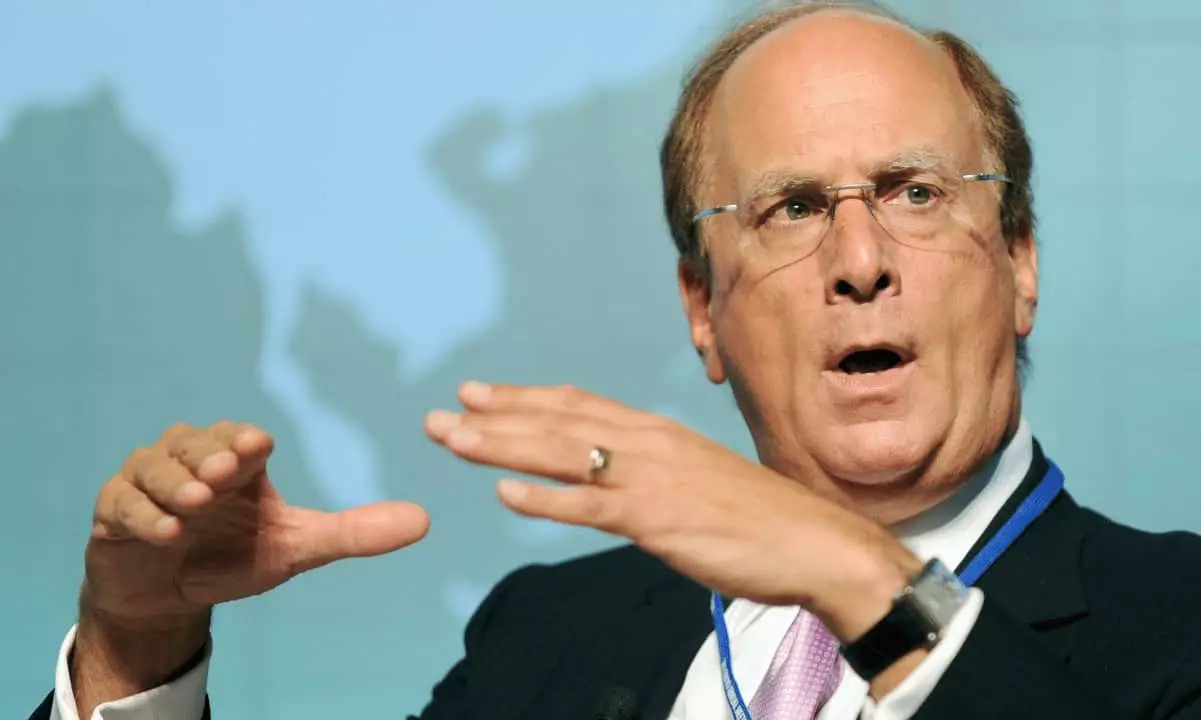Larry Fink, the CEO of BlackRock, has recently characterized Bitcoin (BTC) as a distinct asset class, drawing parallels to traditional commodities like gold. This statement, made during a recent earnings call, signals a notable shift in perspective from one of the world’s foremost asset management firms. Fink’s comments highlight BlackRock’s intent to explore Bitcoin as a viable investment option alongside other assets, indicating a broader acceptance of digital currencies within institutional circles. By likening Bitcoin to gold, Fink not only elevates its status but also suggests that it could serve as a hedge against economic instability—a function historically attributed to precious metals.
Fink argues that the critical factors influencing the success of Bitcoin and other digital assets extend beyond regulatory frameworks. He emphasizes that liquidity and transparency will be paramount in shaping the future of these markets. This perspective challenges prevailing notions that regulation is the primary determinant of cryptocurrency viability. By drawing a comparison between the nascent crypto market and the established $11 trillion mortgage sector, he illustrates that while cryptocurrency may still be in its early stages, advancements in data analysis and market understanding can foster significant growth. Fink’s insights suggest a belief in the inevitability of maturation for digital assets, akin to the evolution witnessed in high-yield markets over the years.
In addition to discussing Bitcoin, Fink touched upon the digitization of national currencies, particularly the potential for a digital U.S. dollar. He cited successful implementations in countries like India and Brazil as exemplars that the U.S. could learn from. These examples showcase the varied applications of digital currencies, from enhancing transactional efficiency to increasing financial inclusion. Fink’s remarks indicate a forward-looking stance on the integration of digital currency technology into existing financial systems and suggest that innovations in this area could become fundamental components of global finance.
Fink also posits that advancements in artificial intelligence (AI) and data analytics may play crucial roles in the growth and acceptance of digital asset markets. By providing enhanced data-driven insights, these technologies can improve market functionality and investor confidence, which are vital for broadening participation in the crypto space. This aligns with current industry trends where data analytics are increasingly utilized to track market movements and predict price dynamics, thereby attracting a more comprehensive investor base.
BlackRock’s Impact on Bitcoin Investment
The implications of BlackRock’s entry into the Bitcoin market have been substantial, especially following the launch of its spot Bitcoin ETF. The recent surge in inflows, amounting to $555.9 million on October 14 alone, demonstrates the appetite for cryptocurrency investments among institutional investors. BlackRock’s position as a market frontrunner has not only contributed to raising Bitcoin prices but has also enhanced its legitimacy as an asset class. With the company’s strategic moves, including the expansion into Ethereum ETFs, it appears committed to navigating and embracing the evolving landscape of digital assets, thus reinforcing confidence both from existing and prospective investors.
Larry Fink’s assertions signify robust changes in investment strategies, where traditional asset paradigms are increasingly interwoven with emerging digital currencies. As the market evolves, the commitment of institutional leaders like BlackRock may steer the future trajectory of cryptocurrency adoption, shaping a landscape ripe with potential.















Leave a Reply